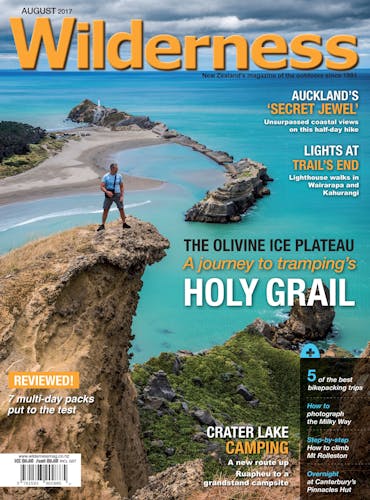A new school offers a different type of education – one focussed on outdoor play.
It’s 11am on a Monday morning at a little school next to the bushy Clevedon Scenic Reserve.
There is a group of kids on the front porch of the school, soaking up the sunshine. One boy plucks away at a guitar next to a scattered assortment of muddy gumboots in various sizes.
Head teacher Joey Moncarz stands near the door, answering questions, eventually offering a hand to a girl whose guitar is out of tune.
This is Deep Green Bush School: a private, ‘democratic nature-immersion’ school just outside of Auckland. Founded by Moncarz and Oksana Simonoff, the school has a unique approach to education.
There are no assignments, no tests, and no grades. There are no bells signaling the start of class; in fact, there’s not even a school desk in sight. The eight students, ages 4 to 14, are free to roam, with very little organised structure to the school day.
There’s no technology: no computers, tablets, televisions or even cell phones – except for Moncarz’s, which is a far cry from a smartphone.
As opposed to the highly regimented style of mainstream education, Moncarz and Simonoff developed a curriculum which, at its core, allows children to play freely in nature. The daily routine is mostly guided by the students; they can suggest activities such as foraging or fishing, which Moncarz then supervises, facilitates, and guides where necessary.
Each morning starts with a talking circle, beginning with a peacekeeping session, in which the students spend time discussing any problems or issues from the day before, or suggesting new rules to help keep the peace. A few of the rules, decided by the children: no screaming inside, no talking in the quiet room, and dishes must be done immediately after they’re used.
Students then talk about what they might do that day; for example, if someone brings in a possum, they might decide to cook it for lunch. Or, if someone brings in a fishing rod, they might go fishing. Typically, they choose their activities as a group.
After the talking circle, they might play outside, or make up a game. Moncarz doesn’t allow traditional toys, which he says helps the students to be creative about how, and with which objects, they choose to play.
“Sometimes they play games, sometimes they go for a walk on the trails in the reserve. Or, like today, they may choose to play guitar,” Moncarz says.
He’ll occasionally suggest activities, such as bringing in flour and yeast to see if anyone feels like baking.
Some might worry the students will miss out on core subjects you’d find in mainstream schools. But that type of learning will eventually happen, Moncarz says, but only when kids ask for it.
“Reading, writing and maths; we don’t push it on them, but it’s hard to avoid in the world. Kids will naturally be interested in what they see other people doing, and if it’s important, they’ll do it, when they’re ready,” he says.
When kids leave regular schools and come to Deep Green, there’s a kind of ‘detox’ period that Moncarz has observed.
“Students coming from mainstream schools have been forced, their whole lives, to do things. When they come here, they’re going to not want to read, write or do maths because they’ve been forced to do it for so long. The longer they’ve been in mainstream school, the longer the detox. So then they’ll spend time playing, and then slowly, they’ll start to pick up a book, or start to write something,” he explains.
The detox period is full of activity, most of which happens outside. The kids are almost always moving, whether it’s playing hide and seek in the bush, learning to identify plants and foraging, or fishing in nearby streams. Inside activities might include playing instruments or cooking.
“They are gaining a sense of ecological responsibility,” says Moncarz. “One kid came and he just wanted to kill everything he saw. But he’s really calmed down, so now, when we trap an animal he asks, ‘do we have to kill it?’”
For kids ages nine and up, there’s a “warrior council” which meets three times a week in the bush to discuss more complex topics. For example, they might talk about the impact of mass media, the dangers of modern technology, or barefoot running, which is of particular interest to Moncarz.
But for younger students, it’s all about playing.
“This is the way children want to grow up. Any teacher knows that by looking at the way children behave in the classroom. Attention deficit disorder happens because children are not supposed to be locked up.”
Moncarz intends to move the school to a new location soon – a farm with 10ha and a yurt classroom. They’ll have more room to roam and be able to practise gardening and woodworking.
They’re also expanding their enrolment, with a few new students starting next term. They’ll cap numbers at 30, which Moncarz says is necessary in order to maintain their current curriculum.
“We can look at the result of 150 years of compulsory education, and this is where it’s brought us. We don’t have a world of mature, responsible adults. If we want a healthier world, we have to do things in a different way. That’s really what it comes down to: learning to live responsibly, and within the Earth’s limits.”








